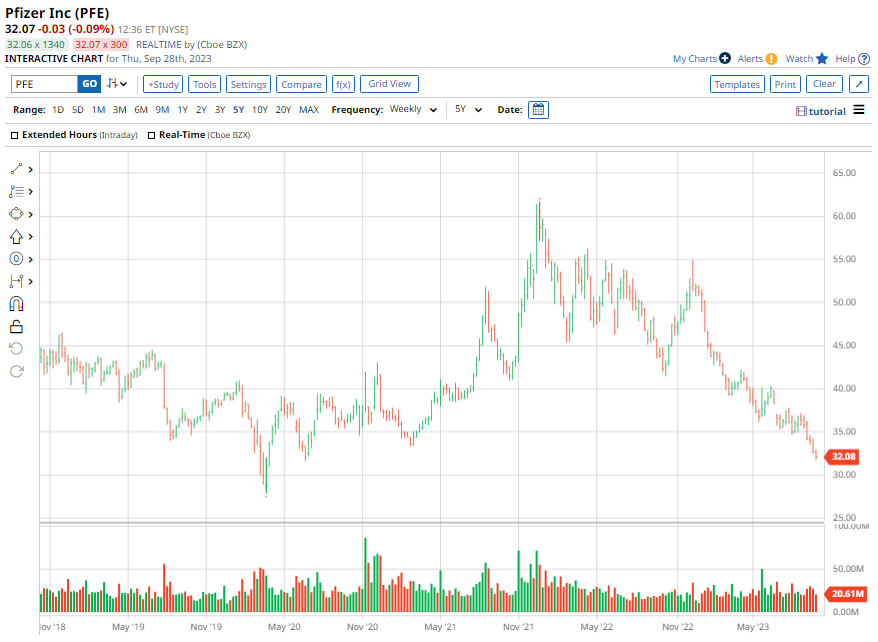
Pfizer Inc., a global pharmaceutical giant, has been a beacon of resilience and innovation in the healthcare sector for decades. As the company continues to make strides in drug development, its stock price has become a subject of keen interest for investors. In this article, we delve into the peaks and valleys of Pfizer’s stock price, exploring the factors influencing its performance and offering insights into what the future might hold.
Historical Overview:
Pfizer’s stock price has a rich history, shaped by various market forces, regulatory developments, and the company’s strategic decisions. The pharmaceutical industry is inherently dynamic, with the constant ebb and flow of market trends and healthcare policies affecting stock valuations.
The Peaks:
- Vaccine Triumph: In recent years, Pfizer has been at the forefront of global attention due to its significant role in the development of COVID-19 vaccines. The announcement of successful vaccine trials marked a historic high for the stock, as investors recognized the company’s pivotal role in combating the pandemic.
- Strategic Mergers and Acquisitions: Pfizer’s strategic moves, such as its acquisition of Hospira and the merger with Allergan (later terminated), have influenced its stock price positively. These actions signal Pfizer’s commitment to expanding its portfolio and market presence.
- Earnings Performance: Strong financial performance and consistent earnings growth have contributed to periods of stock price appreciation. Pfizer’s ability to generate revenue and profits has been a driving force behind investor confidence.
The Valleys:
- Patent Expirations: Like many pharmaceutical companies, Pfizer has faced challenges associated with the expiration of patents on key drugs. The introduction of generic alternatives can lead to a decline in revenue and, consequently, a dip in the stock price.
- Regulatory Setbacks: The pharmaceutical industry is heavily regulated, and any setbacks in drug approvals or safety concerns can impact a company’s stock performance. Pfizer has not been immune to such challenges, and instances of regulatory hurdles have affected its stock price adversely.
- Global Economic Factors: Economic downturns and uncertainties can impact the healthcare sector and, consequently, Pfizer’s stock price. Factors like changes in healthcare policies, currency fluctuations, and global economic crises can lead to market volatility.
Future Outlook:
As we look ahead, several factors will play a role in shaping Pfizer’s stock price. The ongoing development of new drugs, the success of its COVID-19 vaccine in the long term, and strategic partnerships will likely influence investor sentiment.
Moreover, Pfizer’s commitment to addressing global health challenges, advancements in its research and development pipeline, and the evolving landscape of healthcare policies will all contribute to the company’s stock performance.
Conclusion:
Investing in Pfizer requires a nuanced understanding of the pharmaceutical industry, the company’s internal dynamics, and the broader economic landscape. While the peaks and valleys in Pfizer’s stock price are inevitable, a diversified approach, thorough research, and a long-term perspective can help investors navigate the fluctuations and potentially reap the rewards of being part of a pharmaceutical powerhouse that continues to shape the future of healthcare.